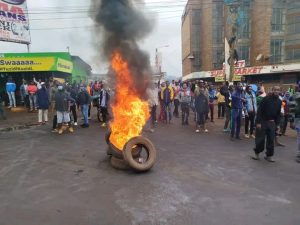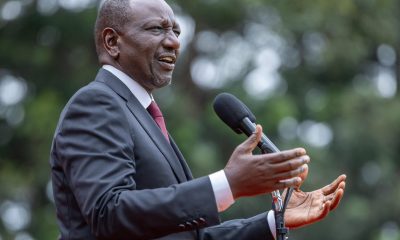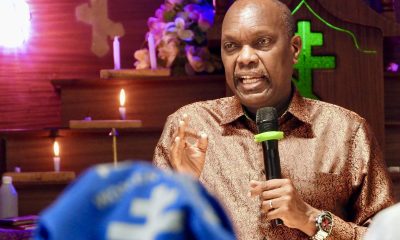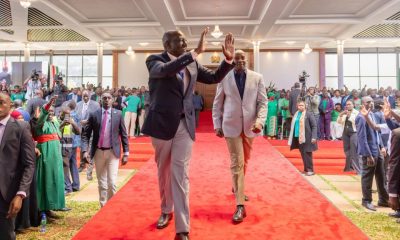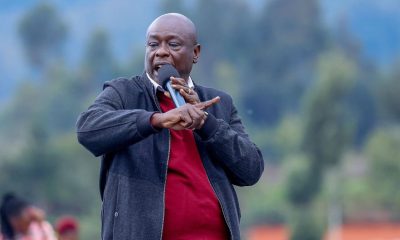Politics
Senator Ojienda Backs Ruto’s Controversial “Shoot in the Leg” Order, Claims Directive Targets Criminals Not Peaceful Protesters
“The president has an obligation to call our forces and the public back to order because we need civility,” Ojienda stated during the live broadcast.
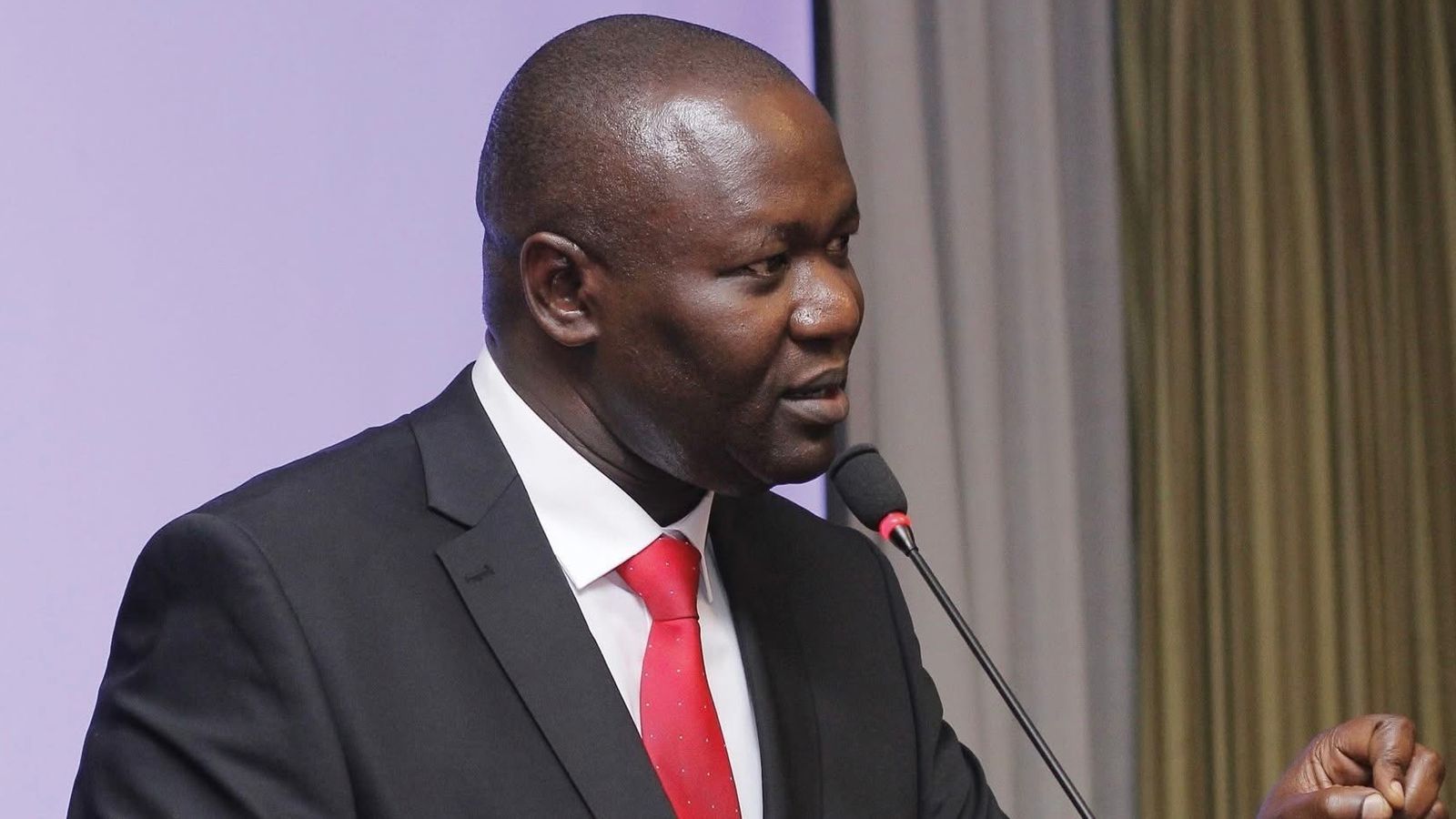
Kisumu Senator Tom Ojienda has thrown his weight behind President William Ruto’s contentious directive instructing police to shoot protesters “in the leg,” arguing that the head of state was specifically targeting criminals and looters rather than peaceful demonstrators.
In a television interview on Thursday, the veteran lawyer and politician defended Ruto’s Wednesday remarks, which have sparked widespread condemnation across Kenya’s political spectrum. Ojienda characterized the president’s statement as a necessary response to escalating violence during recent protests.
“The president has an obligation to call our forces and the public back to order because we need civility,” Ojienda stated during the live broadcast. “Ruto is saying that we must deal with protesters who do not intend to protest but come to destroy property. The president’s message was targeted at looters and goons.”
The controversy stems from Ruto’s appearance in Kilimani on Wednesday, where he issued stark warnings about the use of force against demonstrators. Speaking to his audience, the president declared that anyone using petrol to burn businesses or property “should be shot in the leg, taken to hospital, and then presented in court.”
Ruto’s rhetoric escalated further when addressing attacks on law enforcement, stating: “Anyone who attacks a police officer, anyone who invades a police station—that is a declaration of war in the Republic of Kenya. I do not know if we are understanding each other, my friend. Enough is enough. It cannot go on any longer.”
Senator Ojienda interpreted these remarks as a measured response to criminal elements exploiting legitimate protests. “The president simply said that if you get into a position where you are threatening the lives of those who are supposed to keep law and order, then you will be met with equal force,” he explained.
The defense comes as Kenya grapples with the aftermath of three waves of protests that have reportedly left over 50 people dead. Critics have accused Ruto of authorizing excessive force against citizens exercising their constitutional right to peaceful assembly.
However, Ojienda’s support positions him among a minority of political figures willing to publicly back the president’s stance. The senator emphasized that the directive was conditional, targeting only those whose actions threatened police officers’ lives or involved destruction of property.
The controversy has intensified scrutiny of Ruto’s approach to civil unrest, with opposition politicians and civil society groups expressing alarm at what they perceive as an escalation in state-sanctioned violence. The president, for his part, has framed his position as fulfilling his constitutional duty to protect lives and property.
As Kenya continues to navigate political tensions, Ojienda’s defense of the president’s position highlights the deep divisions within the country’s political establishment over how to balance maintaining order with respecting citizens’ rights to peaceful protest.
The debate over appropriate use of force during demonstrations remains a critical issue as the country seeks to address underlying grievances while preventing further violence and casualties.
Kenya Insights allows guest blogging, if you want to be published on Kenya’s most authoritative and accurate blog, have an expose, news TIPS, story angles, human interest stories, drop us an email on [email protected] or via Telegram
-

 Business4 days ago
Business4 days agoCooking Fuel Firm Koko Collapses After Govt Blocks Sh23bn Carbon Deal
-

 Business3 days ago
Business3 days agoABSA BANK IN CRISIS: How Internal Rot and Client Betrayals Have Exposed Kenya’s Banking Giant
-

 Politics2 weeks ago
Politics2 weeks agoYour Excellency! How Ida’s New Job Title From Ruto’s Envoy Job Is Likely to Impact Luo Politics Post Raila
-

 Business2 weeks ago
Business2 weeks agoMinnesota Fraud, Rice Saga, Medical Equipment Deal: Why BBS Mall Owner Abdiweli Hassan is Becoming The Face of Controversial Somali Businessman in Nairobi
-

 Americas3 days ago
Americas3 days agoEpstein Files: Bill Clinton and George Bush Accused Of Raping A Boy In A Yacht Of ‘Ritualistic Sacrifice’
-

 News2 weeks ago
News2 weeks agoKenya Stares At Health Catastrophe As US Abandons WHO, Threatens Billions In Disease Fighting Programmes
-
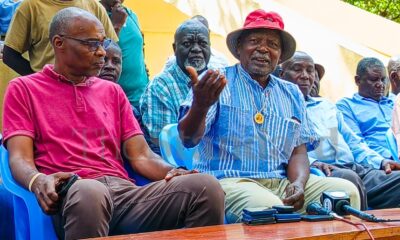
 Politics2 weeks ago
Politics2 weeks agoJaramogi Clan Tells Raila Jr, Winnie Against Disrespecting Their Uncle Oburu, Warns of Curses
-

 News2 weeks ago
News2 weeks agoDCI Probes Meridian Equator Hospital After Botched Procedure That Killed a Lawyer

